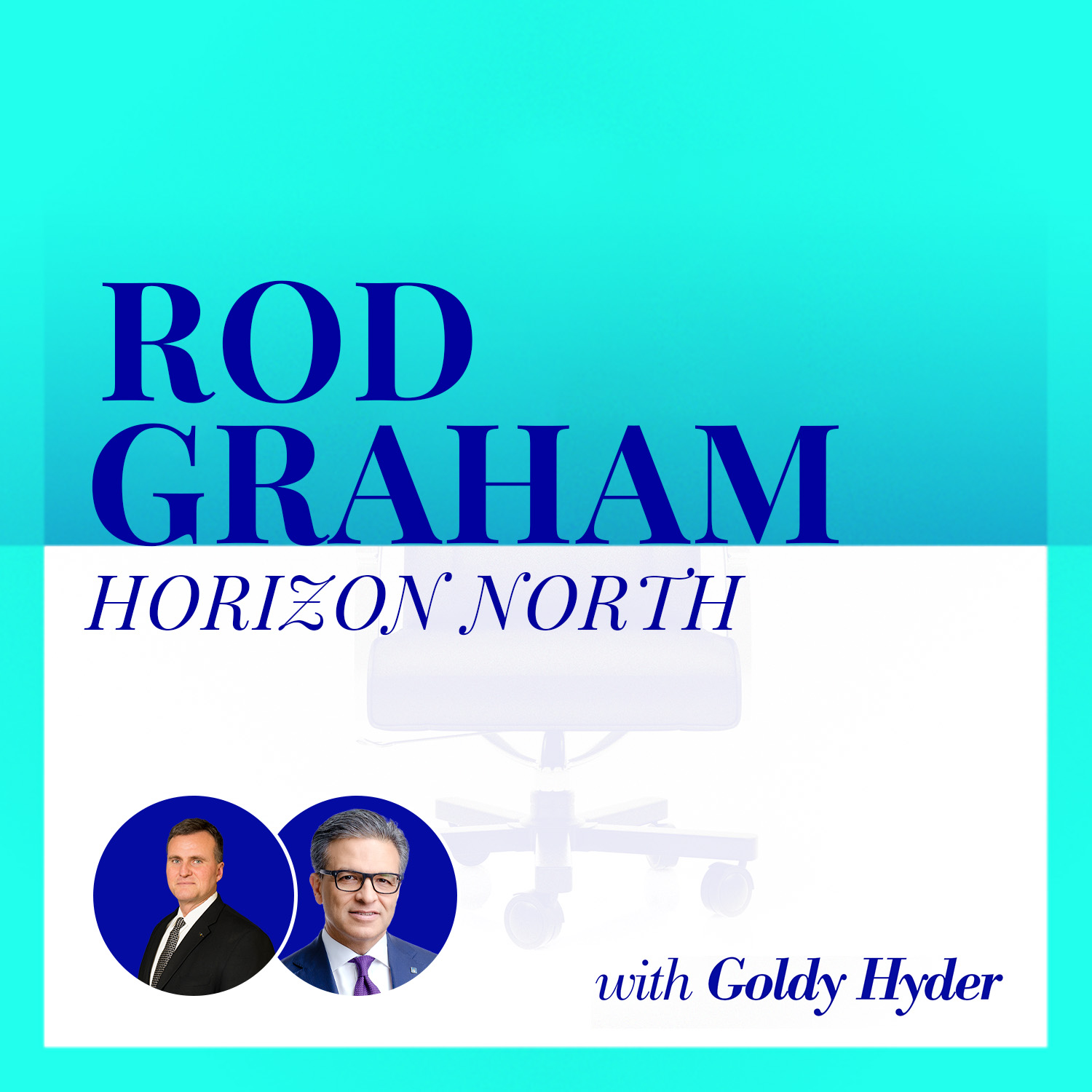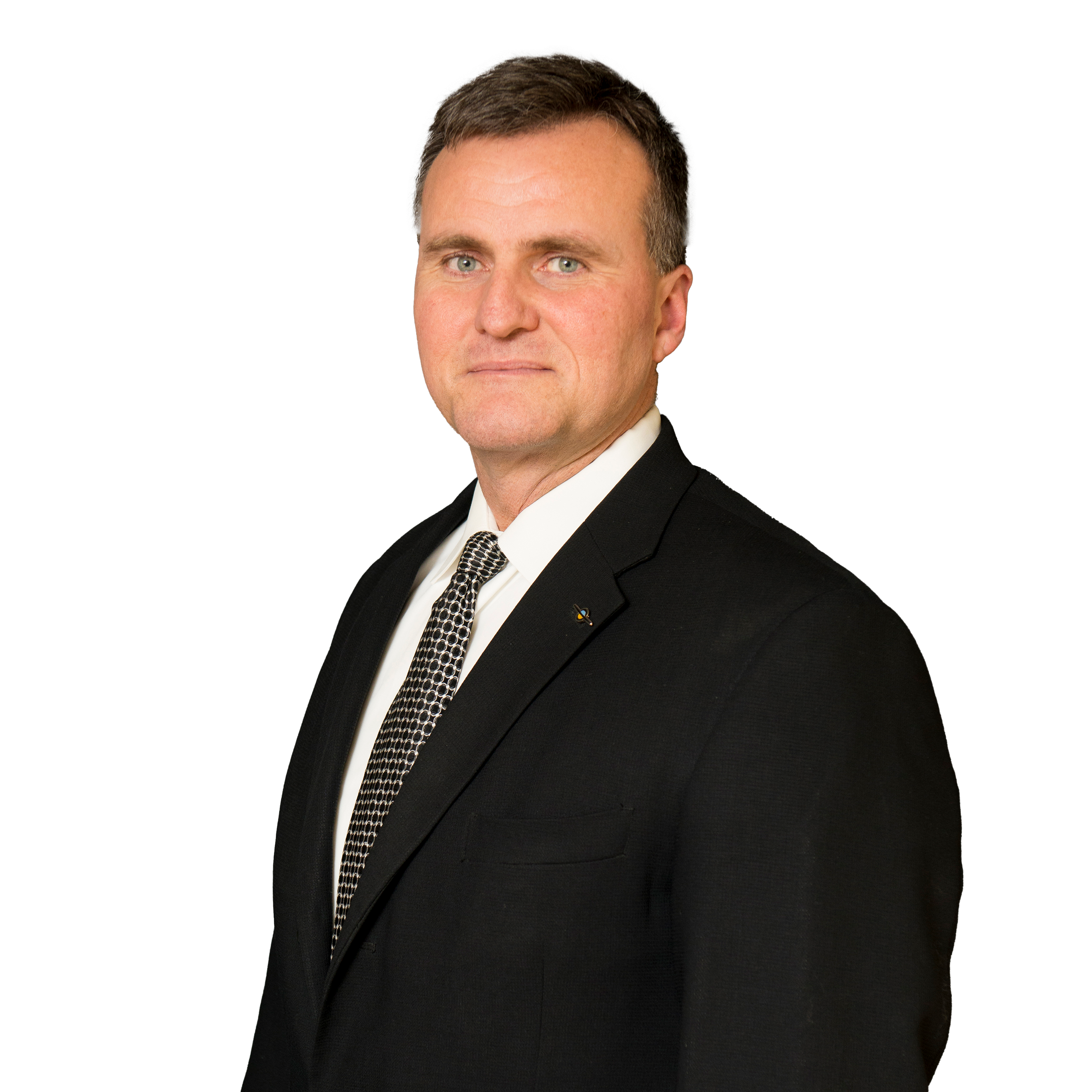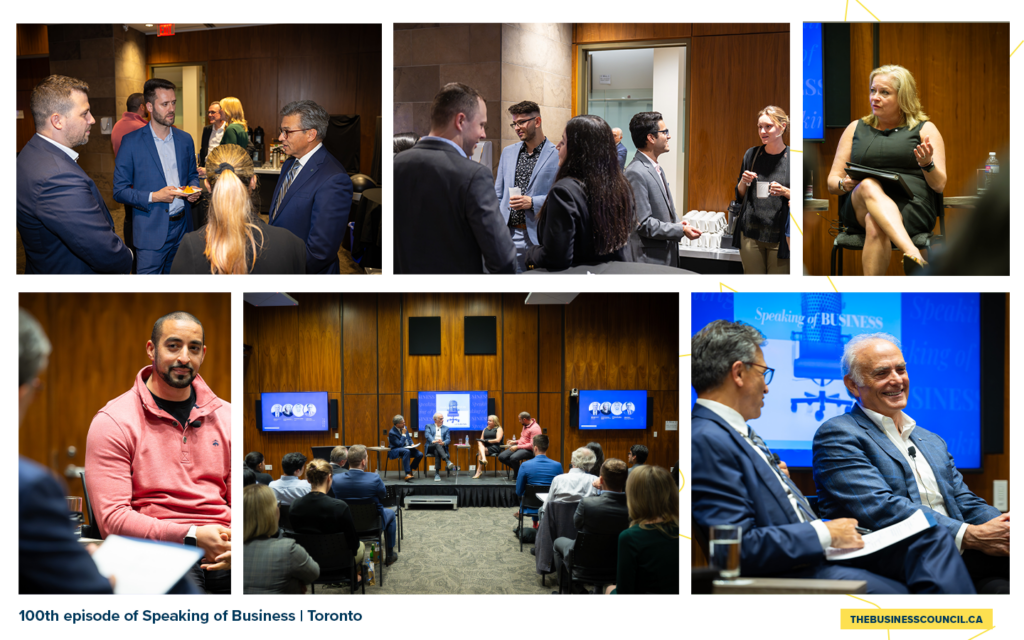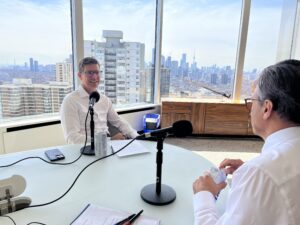How do you keep workers in essential services safe during a pandemic? Rod Graham, President and CEO of Horizon North Logistics, describes the challenges and solutions to ensuring safety in remote work sites.
In light of the COVID-19 emergency, we’ve temporarily suspended our regularly scheduled series of conversations with Canadian CEOs. But we’re not going away. Instead, we’re going to pivot to the health emergency itself. We’re going to explore the impact on companies and workers across the country. And we’re going to find out how business leaders are responding to crisis.
Goldy Hyder:
Welcome to Speaking of Business. I’m Goldy Hyder. We’ve heard the calls from health officials for weeks now: stay at home and don’t go out unless absolutely necessary. The fight against COVID-19 depends on physical distancing, but for many people, finding a safe space is easier said than done. Frontline workers, for example, worry about bringing home the virus. Hospitals are scrambling to find enough space for infected patients, and sadly, many Canadians don’t have a safe place to call home at the best of times, let alone during a pandemic.
Goldy Hyder:
My guest today is a problem solver when it comes to meeting housing needs. Rod Graham is President and CEO of Calgary-based Horizon North Logistics. The company designs and builds modular housing units and other prefab structures that can be deployed quickly to meet a wide variety of short and long-term needs. Rod Graham, welcome to the podcast.
Rod Graham:
Excellent. Thanks very much, Goldy.
Goldy Hyder:
So let’s start off. What kind of help and support are you offering in this pandemic? What is Horizon North Logistics able to do to help with the situation we’re in?
Rod Graham:
Let’s talk of a three-pronged approach. We’ll talk about our own folks. We do have a couple of thousand employees and we’ve offered the ability for people to work from home. So we have what I characterize as high quality IT infrastructure into people’s homes to allow them to be safe and allow for them to continue to keep our business operating but from a remote location. So that’s our own folks that are on the corporate side of our equation. We have two other lines of business, though. One is remote workforce accommodations and the other one is modular construction. So I wouldn’t mind, Goldy, just taking you through what we’re doing in each one of those lines of business, if that’s okay today.
Goldy Hyder:
Sure. Why don’t you do that?
Rod Graham:
Excellent. On the remote accommodations portion of this, we operate in 30-plus locations, and I’ve had all kinds of feedback as a CEO of this organization about why are you still exposing folks? I’m not going to get into the philosophical debates of why that indeed is the case. What I want to do is make sure that our folks are secure. They can come to work feeling that they are getting appropriate hygiene protocol and continue to keep our economy going, Goldy, which I think is an imperative as we go forward. As we talk about some of the remote communities that we do work in, we’ve taken a number of steps to make sure that our folks are well taken care of. When these individuals do fly into a region, and if it’s a remote region, temperature checks when they first arrive. They would effectively have a series of hygiene protocols for entering our facilities.
Rod Graham:
They are provided with PPE as they continue to kind of migrate and move forward in supporting guests that might be operating in a mine, oil sands facility, a liquified natural gas facility, potash. A lot of these locations, quite frankly, can’t be turned off. There is a continuous flow component to it, and so our folks, again, are coming into these kinds of facilities and they are providing food services. They’re providing housekeeping, janitorial, maintenance, and to keep these facilities open and progressing forward, like I said, temperature checks, hygiene, transportation.
Rod Graham:
It’s a checkerboard type of a process in terms of where people sit. If there is a smaller vehicle being utilized, only two individuals in the vehicle, lots of physical distancing when food is being served. The number of folks that can sit at a table is the high count of one, so obviously from an efficiency perspective, not a high efficiency, but really kind of the way we look at this is protecting our guests that are coming and protecting our employees as they operate in this environment.
Rod Graham:
Then finally, Goldy, you’re quite aware of our dedication to working with indigenous communities. I can tell you in some of our more Northern communities where we are dealing with Inuit folks, we have been very sensitive to the desire for a number of these communities to effectively insulate themselves from outside influences. So workers that we have had, a number of them are Inuit in nature. We have put them back into their communities and continue to pay them because it’s just the right thing to do to operate in those types of jurisdictions.
Goldy Hyder:
Well your answer anticipated my second question about safety, so we’ll skip over that one because that was a very thorough response on your part. Thank you for sharing that with us. Another area that I wanted to explore with you, knowing that you work in remote areas, is of course the issue of the work that you’re doing with indigenous communities. What concerns you the most about the impact of the virus in remote areas and specifically related to the challenges of indigenous communities?
Rod Graham:
The biggest challenge, Goldy, and I had the privilege of being able to talk at one of your panel discussions last year is just the lack of infrastructure within these communities, and that’s why we’re hypersensitive to working in a series of these Northern communities. Quite frankly, that incident that would occur in a remote location would never have the appropriate health infrastructure if it became a pandemic within that community, and so that’s why we tried to be pre-emptive in allowing for individuals from communities to go back to those communities and continue to at least provide them a base of payments and so they can pay their bills within the community.
Rod Graham:
I see a real opportunity, and I know that our federal government, provincial governments have been looking at this as a unique opportunity through this pandemic to improve the quality of healthcare infrastructure within communities. That leads me to the other part of our business, which is modular construction and the ability for us to build nursing stations and healthcare units in relatively short order. Because they are modular, they are able to be transported.
Rod Graham:
Quite frankly, I think there’s an opportunity for us to, finally, come to that longstanding obligation that we have to our indigenous folks to improve the quality of life and quality of infrastructure within the community. So I think there is a unique opportunity for, effectively, these medical units to be put into every community. Quite frankly, everyone deserves to have at least a base in standard of care within their area, and I think this is kind of a unique opportunity for our federal government, provincial governments to implement such a plan.
Goldy Hyder:
Well, look, let me ask about leadership. You talked about this being a unique opportunity. Of course, it’s a very unfortunate, unique opportunity, but it’s often said that leaders can be made in a crisis situation. What are you learning about being a leader? What are you learning about leadership in terms of takeaways from when this crisis is over?
Rod Graham:
I view this crisis as a war, Goldy. It’s indiscriminate in terms of age, gender, race. It attacks anybody. Quite frankly, we’re all exposed in some manner, and so it, I think, has become a very interesting leveling conversation for certainly our leadership team as we talk through the fact that all of us are, quite frankly, at risk. So from a leadership perspective, I make sure if there is concerns, people can email me, within other communities we operate in or our own employees and I make sure I get back to them by myself. I don’t kind of put an intermediary just to talk through what we’re doing for a protocol perspective.
Rod Graham:
As well, I participate in conversations with provincial ministries. Obviously given the fact that we are running industrial work camps, it is a priority for ministers of health within multiple jurisdictions just to make sure that we do have safe protocol, and I can tell you that our pandemic response, our COVID response plan is one that, quite frankly, has been embraced by a few of the provincial ministries. So from a leadership perspective, making sure we are working with as many government bodies as possible. This is not the time to effectively hide. It’s time to be out and identifying how we are looking to work our way through this war is what I call it.
Goldy Hyder:
Well, that’s well said, and the war continues. I want to thank you for joining us today and giving up some of your valuable time to share your insights and the great work that you and your colleagues are doing now and on an ongoing basis. So thanks for taking the time today, Rod. We really appreciate it.
Rod Graham:
Goldy, thank you again for the opportunity to speak.
Goldy Hyder:
Rod Graham is president and CEO of Horizon North Logistics. If you would like to hear more of this special Speaking of Business series, conversations with our CEOs about the COVID-19 crisis, you can find them all wherever you get your podcasts or simply go to our website, SpeakingOfBiz.ca. That’s biz with a zed. Until next time, I’m Goldy Hyder. Thanks for joining us.
















